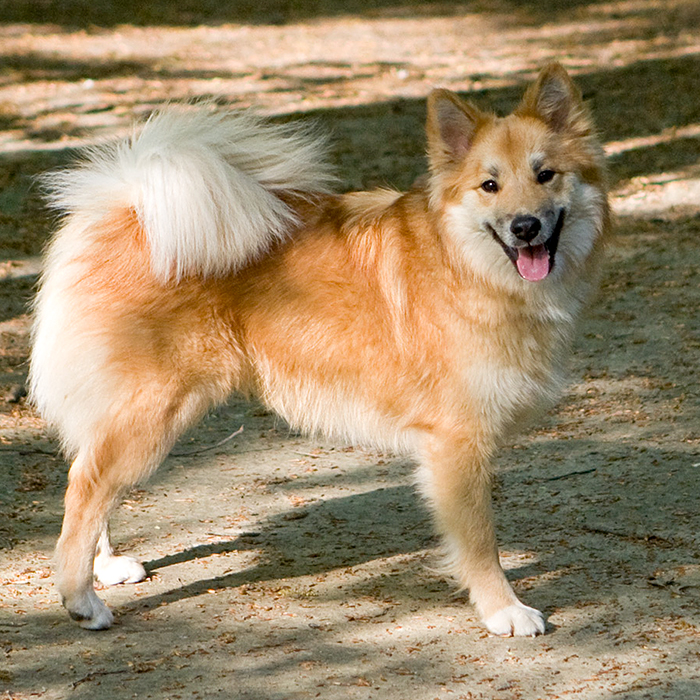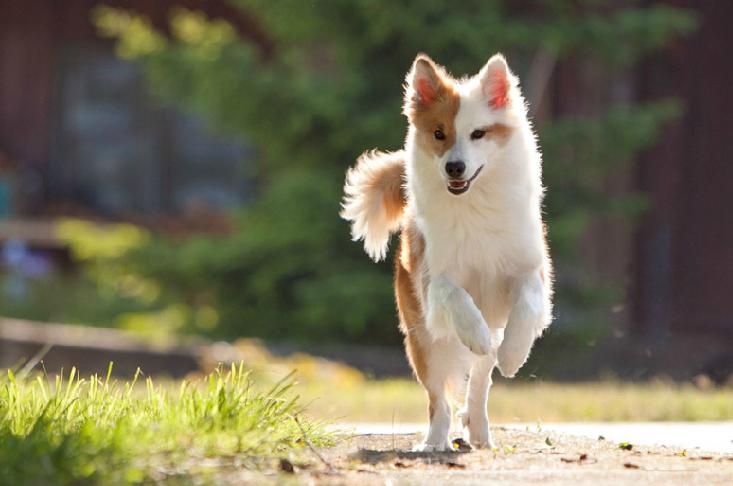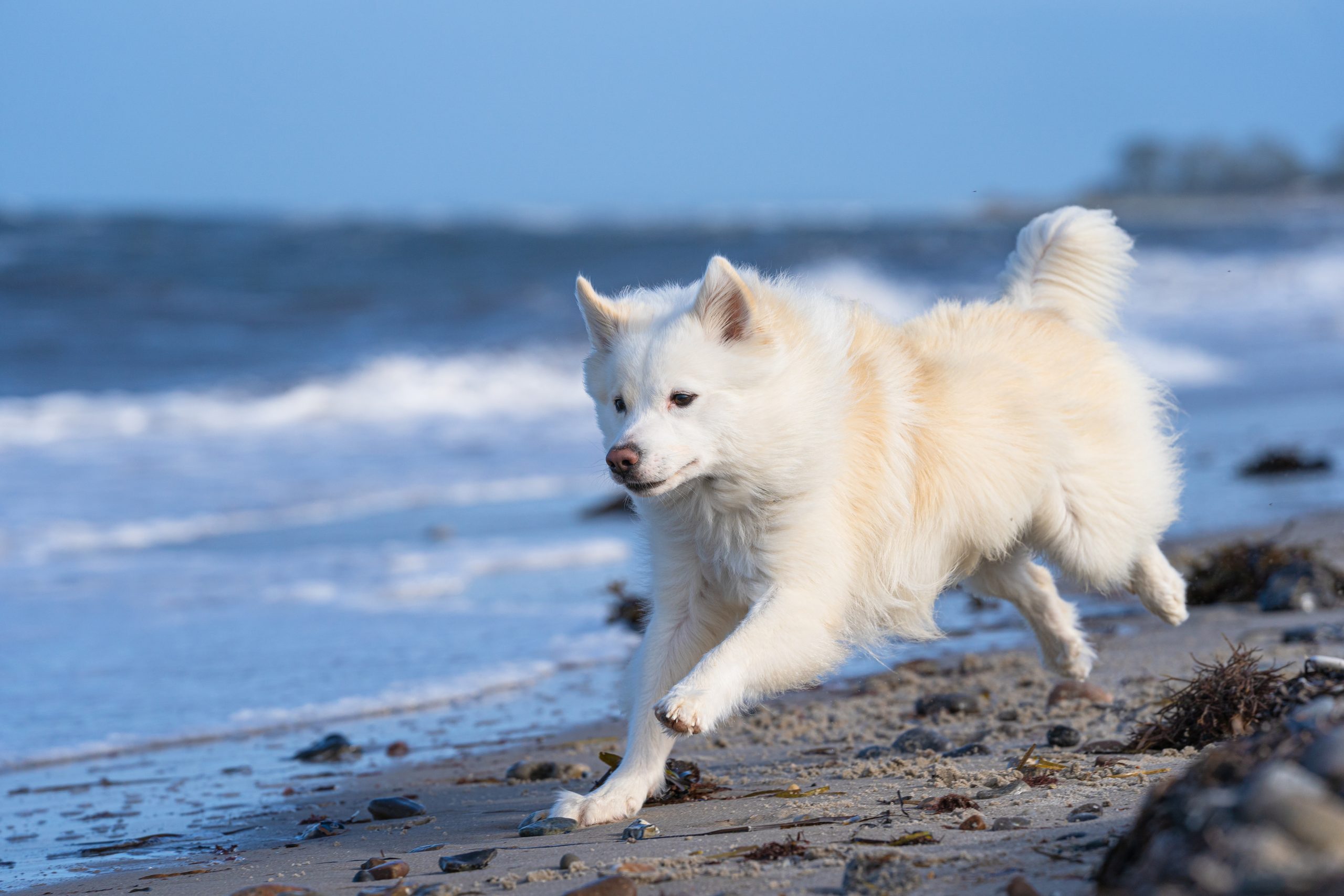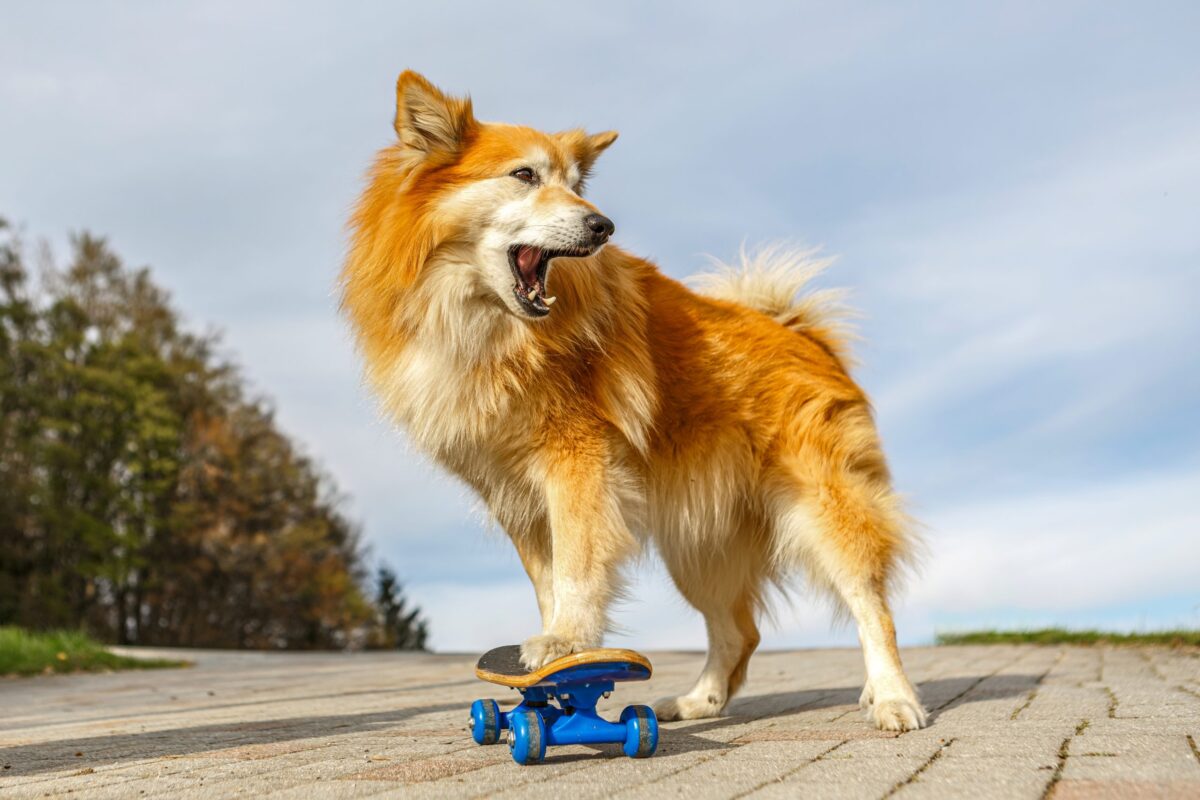Icelandic Sheepdog
No products found which match your selection.
Shelter Dog Meal Donation Count:
No products found which match your selection.
The Icelandic Sheepdog, Iceland’s only native dog breed, is a charming and robust companion known for its agility, intelligence, and friendly demeanor. This breed’s vivacious personality and eagerness to please make it a fantastic addition to active households. With their herding background, they excel in activities that stimulate both their minds and bodies. While they require regular grooming and plenty of exercises, their adaptability and joyous nature render them a delightful companion for those willing to meet their needs. Loving and loyal, the Icelandic Sheepdog forms strong bonds with its family, bringing warmth and energy to any home.
The Icelandic Sheepdog, Iceland’s only native dog breed, is deeply rooted in the country’s heritage and culture. Traditionally used for herding sheep and other livestock in rural Iceland, they adapt well to rugged landscapes and harsh conditions.

Dating back to the settlement of Iceland in the 9th century, the Icelandic Sheepdog is believed to have been brought by Viking settlers. This breed has played a crucial role in the Icelandic way of life, particularly in farming and herding.




Generally healthy, but some may be prone to hip dysplasia and eye problems. Regular health screenings and veterinary check-ups are recommended.
Regular brushing is necessary, especially during shedding seasons. Their thick coat requires more grooming attention in wet and muddy conditions.
High exercise needs; requires regular physical and mental stimulation. Thrives in active environments and enjoys outdoor activities.
Intelligent and trainable but can display independence. Consistency and positive reinforcement are key in training. Early socialization is crucial for a well-adjusted temperament.
Requires a balanced diet suitable for a medium-sized, active dog. Care should be taken to monitor food intake to maintain a healthy weight.
Caring for an Icelandic Sheepdog involves meeting their exercise, social, and grooming needs. They thrive in environments where they can be active, engage in outdoor activities, and are part of family life. With proper care, including regular veterinary visits, appropriate nutrition, and sufficient exercise, Icelandic Sheepdogs make loyal and delightful companions.
The Icelandic Sheepdog, known for its friendly disposition and energetic nature, is generally a healthy breed, but like all breeds, they have predispositions to specific health issues. Awareness of these potential problems and conducting recommended tests can help maintain their health.
Understanding these common health issues and adhering to the recommended tests and preventive care guidelines can help ensure an Icelandic Sheepdog's long, healthy life. Collaboration with your veterinarian is key to developing a health care plan tailored to your dog's needs.
The iHeartDogs Free Rx Discount Card Program is a pet prescription discount card that can help you save money on your furry friend’s medications. The card is free to sign up for, and you can use it at participating pharmacies nationwide. To use the free program, simply show the card to your pharmacist when you pick up your pet’s prescription. The pharmacist will then scan the card, and you will receive a discount on the price of the medication.LEARN MORE
Caring for an Icelandic Sheepdog involves various expenses that can vary depending on factors like location, the dog’s age, health, and personal care choices. Here’s a breakdown of typical expenses:
Total Estimated Annual Cost:
$2750 - $7400
It's important to note that these figures are estimates and can vary. Also, the first year of owning a dog can be more expensive due to one-time costs like spaying/neutering, initial vaccinations, and training. Regular budgeting for your dog's needs and an emergency fund for unforeseen costs are essential for responsible pet ownership.